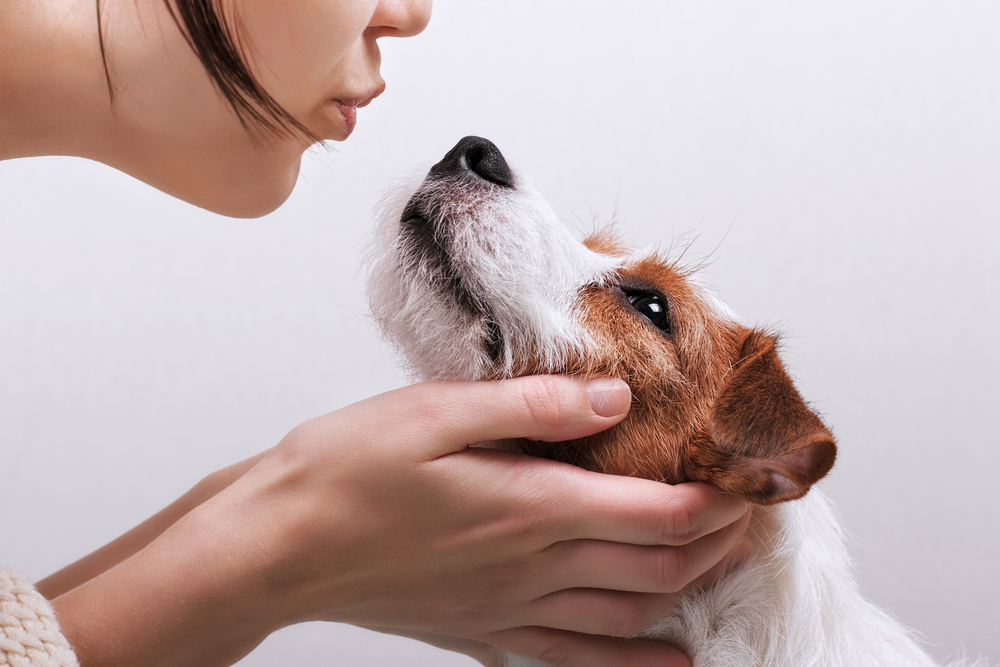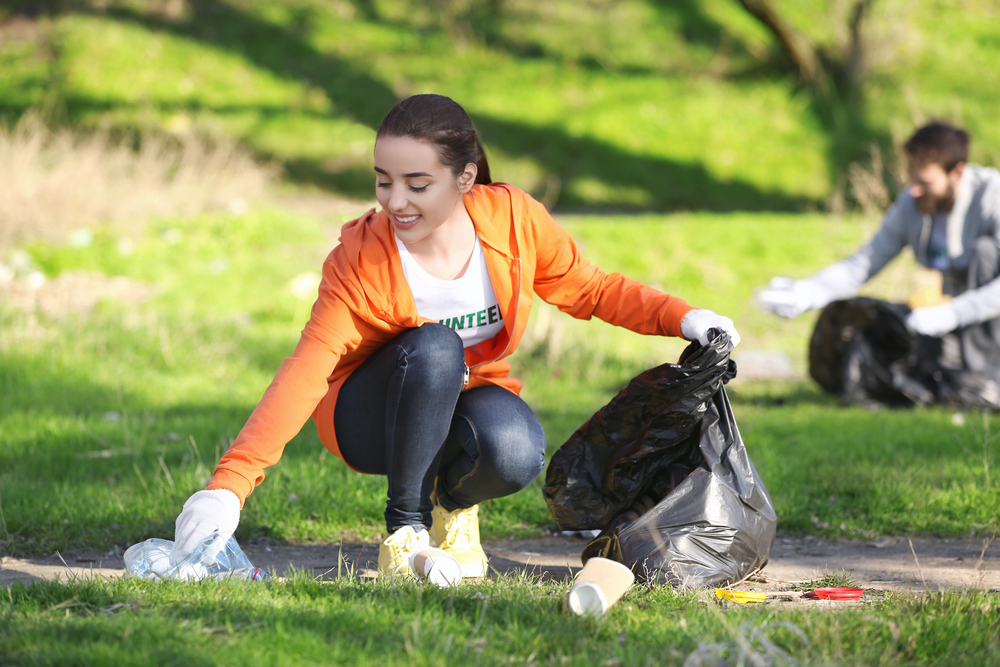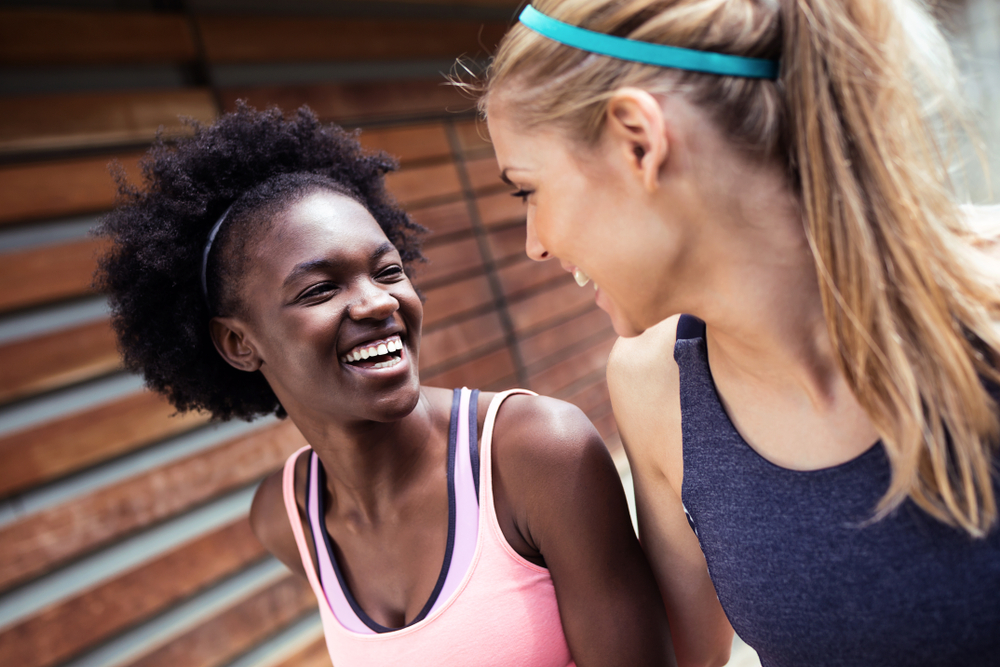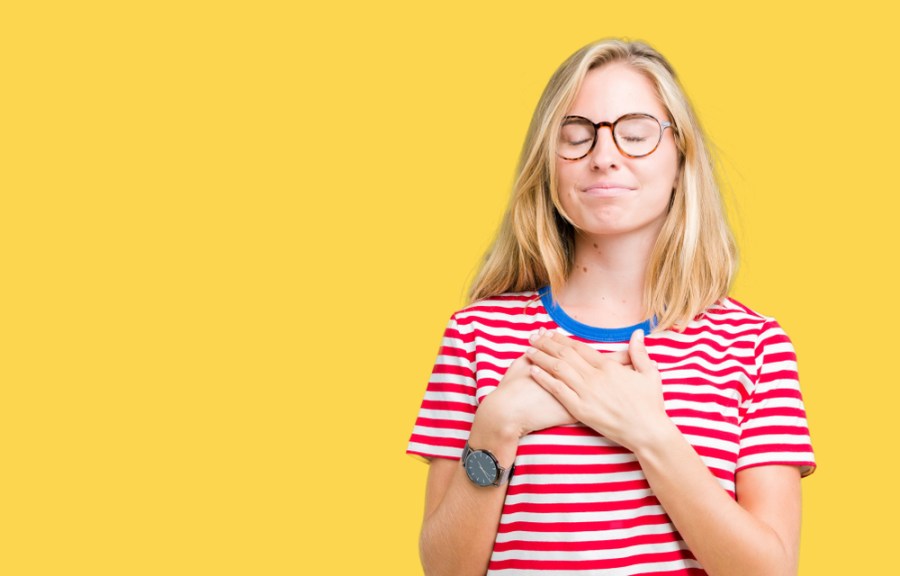Embrace a new way of being loving by shifting your focus from mindfulness to ‘kindfulness’, and feel the power of reaching out to those around you…with some amazing health benefits!
Around 2,500 years ago, the Greek storyteller, Aesop, said: ‘No act of kindness, no matter how small, is ever wasted’. Centuries later, we are beginning to understand that never has a truer word been spoken, for the simple yet powerful act of being kind has far-reaching benefits. It has a profound effect on your physical and mental health… so much so, that kindness is set to usurp mindfulness as 2019’s route to wellbeing.
What are the health benefits of being kind?
When you are kind, your brain’s pleasure and reward centres light up as if you were the recipient of the good deed, not the giver, according to research from Emory University. ‘This phenomenon is called the “helper’s high”,’ explains Dr Lorna Brocksopp, positive psychology and wellbeing consultant (joyfulsimplicity.co.uk)
‘Kindness has also been found to stimulate the production of serotonin, the feelgood chemical that promotes both physical and mental health – healing your wounds, calming you when you are stressed or anxious, and making you feel happy.’
A study by the University of British Columbia asked highly anxious individuals to perform at least six acts of kindness a week. After one month, there was a significant increase in positive moods and relationship satisfaction, and a decrease in social avoidance. This is perhaps because helping others can leave you feeling stronger, more energetic, calmer, less depressed and with an increased feeling of self-worth, according to a study from the Greater Good Science Center at the University of California.

Being kind reduces pain and boosts self-esteem
‘Being kind and caring has also been found to provide a sense of empowerment and increased self-esteem, which is associated with emotional wellbeing,’ says Lorna. And helping those around you isn’t just good for your emotional health, it’s good for you physically too. ‘Research has shown that people who show kindness through volunteering tend to experience fewer aches and pains,’ Lorna says.
‘People aged 55 and older who volunteer for two or more organisations have a 44 per cent lower likelihood of dying early, and that’s despite other contributing factors, including physical health, exercise, gender, marital status and habits such as smoking. Helping others has a stronger effect than exercising four times a week!’
How to be kind online
Today some of the most visible acts of kindness are online. According to a survey conducted by the crowdfunding platform GoFundMe, the average Brit carries out 11.1 acts of kindness a month, including ‘liking’ a social media post to make someone feel good, leaving positive reviews, sticking up for someone being trolled and donating to charity. Indeed, our altruism has seen 50 million people donate more than £4 billion to campaigns on GoFundMe since it began in 2010.
‘What could be more loving than helping a friend, neighbour, family member or even a stranger when they need it? At GoFundMe we see thousands of stories that restore your faith in humanity with their incredible expressions of kindness,’ says John Coventry, director at GoFundMe.
Build a kindness community
But offline, too, kindness is thriving. We still hold doors open for each other, take in parcels for our neighbours and donate our clothes to charity, according to the survey.
And 79 per cent of women feel they are community-minded – with some going above and beyond. Kerry Lister-Pattinson, 33, wanted to help the homeless survive the colder months, so she set up Making Winter Warmer with her friend Jo-Anne Burns, also 33, in their home city of Newcastle. ‘Winter is cold, dark and long – and I have central heating and a roof over my head. For the homeless, it is brutal. That’s why we set up our charity five years ago. We crowdsource everything from the 15,000 amazing members of our Facebook group.
‘We collect warm clothes, toiletries, sleeping bags, toothpaste and snacks, then distribute goodie bags across the North East. The people we help need a hug and a chat as much as they need a warm jumper, and we’re happy to provide both. While there’s a need, someone needs to help. We are both busy mums but we will always make time for the homeless because every human deserves compassion.’
Random acts of kindness
A global desire to spread kindness has given rise to wonderful projects, such as the Kindness Ninja Hut (kindnessninja.me). This annual, week-long challenge sees teams compete across the world to carry out tasks such as standing on the street with an uplifting sign, thanking someone who works for the emergency services, or giving a flower to a stranger.
As Princess Diana once said: ‘Carry out a random act of kindness, with no expectation of reward, safe in the knowledge that one day someone might do the same for you.’ It’s a powerful philosphy that still rings true.
‘Research has shown that the positive effects of kindness are experienced in the brains of everyone who witnesses the act, improving their mood and making them significantly more likely to “pay it forward.” This means one good deed can create a domino effect and improve the day for dozens of people – kindness really is contagious!’
Lorna says.

How businesses can promote kindness
Is there room for kindness in business? Charlie Williams, 45, and her business partner Lucie Carr, 39, believed there was when they set up their clothing, toys and gifts store, The Kindness Co-op (thekindnessco-op.com). ‘When we sat down to discuss ideas, we agreed what was most important was kindness!’ says Charlie.
‘We promote kindness towards each other, ourselves and the environment. Our clothes bear kind slogans because we want kids to feel good vibes. We work collaboratively with other small businesses and donate to the charity YoungMinds with every purchase made. All the money in the world is meaningless if you don’t pay it forward – that’s what makes you feel good.’
Natalie Savvides, 44, from Barnes, London, is a children’s author and anti-bullying campaigner. ‘When William, now six, was at nursery, one of the other kids was unkind to him. Seeing him dread going in made me want to show children how cool it is to be kind,’ she says. Natalie created Henry and Henrietta Heartbeat (Meet Henrietta Heartbeat, Austin Macauley Publishers, £9.99, amazon.co.uk) hoping that children would copy the characters’ kind words and actions.
‘Henry and Henrietta educate though simple rhyming stories. They always act with care, inclusion, acceptance, love and kindness. They show how everyone is happier when living this way,’ says Natalie. ‘I believe that a kindness revolution must start at the beginning of a child’s life. That way, kindness becomes a way of life, for life.’
Studies suggest that early development has a huge impact on the wellbeing, achievements and happiness of individuals later in life. ‘The first six years are critical to who we become, so instead of preparing children for a “real world” that’s not so kind, I hope to change the future so it’s a better world full of more kind people,’ says Natalie, who hopes to take the book series on tour around the nation’s schools and believes kindness should be taught in lessons, the results being just as important as maths and spelling.
Get fit and do good

We’ve seen kindness on the streets, kindness in business and schools, but kindness can even be squeezed into our exercise regime.
GoodGym (goodgym.org) is a community of runners that combine doing good with getting fit. Anna Myat, 48, from Tower Hamlets in London, started running with GoodGym five years ago. ‘As a stay-at-home mum to four kids, I’d lost confidence and I wanted to feel useful in society and meet new people. We meet at a base, run to a location not too far away, then do a half-hour task.
‘There’s such variety in our projects: we might paint community centres, weed gardens, clear leaves, shift manure or sand benches. Then we’ll have a fitness session and run back to base,’ Anna explains.
‘As a runner, I didn’t always exercise my whole body but if I’m turning compost at a community farm, I’m getting a great upper body workout too. It gives me a sense of purpose to help the local community and be part of a team. It really puts a smile on my face.’ GoodGym has proved so popular that the concept, which began in London in 2009, now has clubs in 47 areas all across the UK, with 78 more in the pipeline.The community of runners has completed more than 116,792 acts of kindness since the organisation was first set up.
Being kind can bring physical and spiritual benefits
‘Kindness and altruistic behaviour has been associated with an increased sense of social and spiritual wellbeing; it not only enhances your sense of connectedness with others, it can also have a positive impact on your spiritual wellbeing, defined by researchers Rayment and Smith as concerning a move “beyond consumerism, human comfort and economic measures into factors such as service for others”,’ says Lorna.
‘As the recipient of an act of kindness, you feel a surge in oxytocin, the “love” hormone. Oxytocin aids in lowering blood pressure and improving your overall heart health. It also increases our self-esteem and optimism.’
While it can often feel as if the world is getting less kind, with headlines frequently reminding us wars are raging and humans are being inhumanely unkind to one another, it is important to remember that kindness abounds.
‘I believe in living as kind a life as possible. Every life on this planet counts and every life is connected. We can see that connection through simple acts of kindness,’ says Lorna. ‘It reaches out beyond our socially and culturally constructed notions of hierarchy, prestige and success and touches the heart of every one of us. And it’s never too late to start.’
Kind acts to perform every day
Dr Lorna Brocksopp suggests some ways to make every day a kind one…
- Give someone your full attention. Whether it’s your kids, partner, friends or boss,
give them 100 per cent of your attention - Write a list of things you adore about a friend…
- … then send it to them.
- Give a forever home to a rescue animal. You’ll be repaid with years of love.
- Pick up litter. You’ll make the area more pleasant for everyone – including you!
- Phone for a chat. Call someone who might be lonely, or a friend you haven’t seen in a while.
- Forgive someone. Letting go of a grudge could make you feel better in the long run.
- Feed the birds. Leave seeds in your garden and they will repay you with a chirpy song and dance.
- Rescue little creatures. Be kind to other species, from trapped flies to spiders.
- Our heart-healthy workout plan
- How brain working recursive therapy can help you worry less







